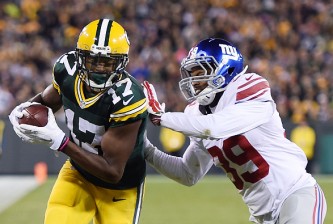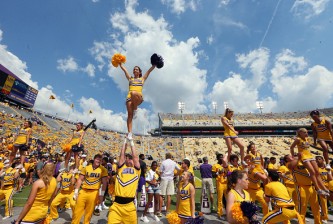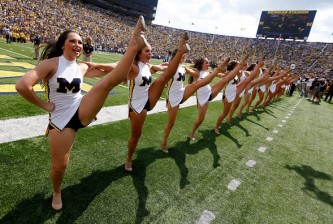NBC is crowing over the fact that Communist China’s Olympics were the most watched in US history. Covered is the fact that Saturday’s primetime coverage fell to a 10.2 rating and 19 share, down from an 11.1/21 for the comparable night from the Athens games.
Here’s the press release:
BEIJING OLYMPICS BECOME MOST-VIEWED EVENT IN U.S. TV HISTORY211 MILLION WATCH BEIJING GAMES ON NBC UNIVERSAL THROUGH 16 DAYS, SURPASSING THE ATLANTA GAMES’ 209 MILLION
86 Million Watch on NBC Universal’s Cable Nets ; 86% of All U.S. TV Households Have Tuned In
NEW YORK –Aug. 24, 2008 –Through 16 days, NBC Universal's Beijing Olympic coverage has reached 211 million viewers and has been viewed by more Americans than any event in U.S. television history, according to data provided by Nielsen Media Research. The Beijing Games have surpassed the 1996 Atlanta Games, which were viewed by 209 million Americans. The 211 million viewers are 11 million more than the first 16 days for Athens (200 million) and 5 million more than the Atlanta Games (206 million). NBCU's cable networks through 16 days have already reached 86 million, surpassing the 17-day viewership total for any previous Olympics.
MOST VIEWED EVENTS IN U.S. TV HISTORY:
1. *2008 Beijing Summer Olympics, 211 million (*through 16 days)
2. 1996 Atlanta Summer Olympics, 209 million (17 days)
3. 1994 Lillehammer Winter Olympics, 204 million (16 days)
4 . 2004 Athens Summer Olympics, 203 million (17 days)
5. 1988 Seoul Summer Olympics, 194 million (17 days)
The Beijing Olympic 16-day average primetime viewership is 27.7 million, 11 percent ahead of Athens in 2004 (24.9 million). NBC's average of a 16.2 rating, 28 share is the best through the final Saturday for a Summer Olympics outside the U.S. since Barcelona in 1992 (17.3/33), and is a seven percent jump from Athens in 2004 (15.2/27).
Saturday night garnered 43 million total viewers in primetime and 16.5 million average viewers. The night earned a 10.2 rating/19 share. The comparable night in Athens did an 11.1 rating/21 share and averaged 18.0 million viewers.
BEIJING GAMES BOOST NBC UNIVERSAL'S CABLE NETS:
Through 16 days, 86 million have watched the coverage on NBC Universal's cable networks, a 25 percent gain from the first 16 days of the Athens Games (69 million) and more than the 17-day total viewership for any previous Olympics (Athens, 69 million).
TAMi FOR FRIDAY: The TAMi (Total Audience Measurement Index) measures the 3600 hours of programming during the 2008 Beijing Olympics, including Television (P2+ reach), Online (Unique Users), Mobile (WAP unique users and Mobile VOD unique users) and TV VOD (unique users). Below is the TAMi measurement through Friday, Aug. 22:
Friday, August 22: 79.8 million
TV: 73.3 million, ONLINE 6.1 million, Mobile 421k, TV VOD: n/a
Thursday, Aug. 21: 87.7 million
Wednesday, Aug. 20: 91.2 million
Tuesday, Aug. 19: 95.5 million
Monday, Aug. 18: 94.4 million
Sunday, Aug. 17: 107.4 million
Saturday, Aug. 16: 108.0 million
Friday, Aug. 15: 95.1 million
Thursday, Aug. 14: 101.6 million
Wednesday, Aug. 13: 101.0 million
Tuesday, Aug. 12: 105.1 million
Monday, Aug. 11: 103.2 million
Sunday, Aug. 10: 113.1 million
Saturday, Aug. 9: 97.8 million
Friday, Aug. 8: 74.6 million
Overall, this has been a successful Olympics for NBC. The network should see good numbers with the 2010 Winter Olympics in Vancouver as most (and I stress most) of the action will be live on the Eastern and Central time zones. We will probably revisit the live/not live controversy once again in 2010 unless NBC’s West Coast affiliates agree to forego their early local newscasts.






















